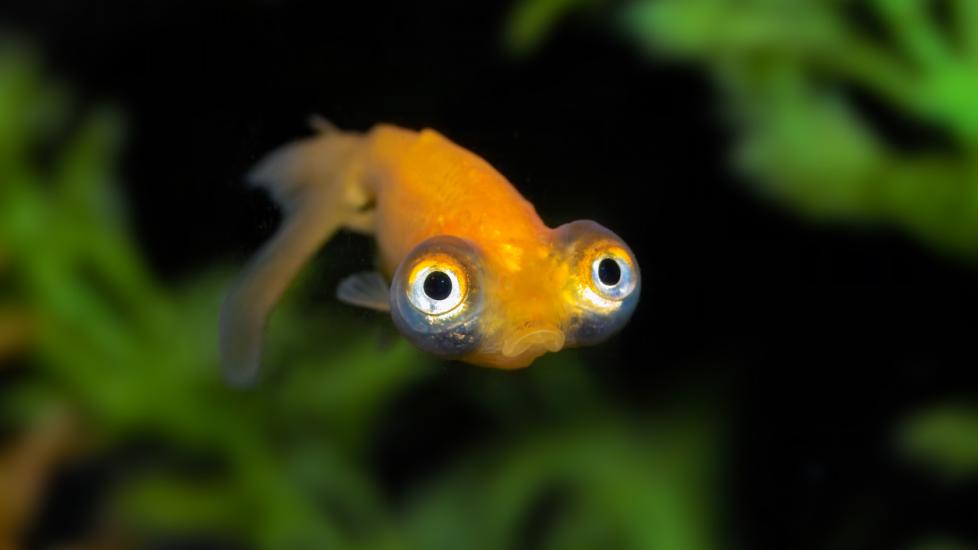Lice and Leeches in Fish
What are Lice and Leeches in Fish?
Lice and leeches in fish are types of external parasites that can attach to the skin and gills of fish. In wild fish and wild-caught aquarium fish, there are many different types of lice and leeches, both in saltwater and freshwater species. In captive bred fish, including most pet fish species, there are only a few species of lice and leeches that can potentially harm fish.
Symptoms of Lice and Leeches in Fish
-
Small dark or tan spots on body
-
Flashing (rubbing body on items in tank)
-
Jumping
-
Decreased appetite
-
Lethargy
-
Pale gills
Most common species of lice and leeches in pet fish tend to be macroscopic, meaning that they are visible to the naked eye. However, changes in coloration and algae buildup can be mistaken for parasites. Depending on type, the parasite could be as small as the tip of a pencil, to as large as a few centimeters.
Most leeches and lice are brown or tan in coloration, so they stand out against more vibrantly colored fishes. Often, parasites will hide under fin attachments, right next to the muscle, or in the mouth, which may make them harder for pet parents to spot.
Causes of Lice and Leeches in Fish
The most common cause of lice and leeches getting into an aquarium is from a fish that has not been properly quarantined. Quarantine entails isolating your newly purchased or adopted fish in a separate system for 4-6 weeks. Just like quarantining your other pets can help control disease, fish quarantine is essential in preventing all pathogens from overtaking your main tank.
A correct quarantine setup should provide your fish a safe and clean environment where you can closely watch their appearance and behavior. If you notice anything off about their appearance, including odd coloration, new spots emerging, or behavioral cues such as flashing, or trying to scratch themselves on items in their tank, lethargy or decreased appetite, you will need to contact your aquatic veterinarian for an exam.
Stress can also cause outbreaks when your fish are carrying a low parasite load, but not currently showing any clinical signs, often referred to as a “subclinical” infestation. Fish can become stressed due to poor water quality, inappropriate environment, aggressive social interactions, poor diet and more. Once stressed, a fish’s immune system is not as effective, allowing subclinical infestations to grow and thrive.
How Veterinarians Diagnose Lice and Leeches in Fish
Your veterinarian will need to complete a fish physical exam under sedation. Fish are high-stress, very slippery, and hard to restrain, so your veterinarian will likely need to add some medication to your fish’s water in order to sedate them. This process will not hurt your fish. Lethargic fish with significant parasite loads may not be able to receive sedation–this will be at the discretion of your veterinarian.
Once sedated, your veterinarian will look all over your fish, including in the oral cavity, and take samples from their skin and gills. Any macroscopic parasites may also be removed at this time. These samples will then be examined under the microscope to determine the type or species of parasite and its current life stages present on your fish.
Treatment of Lice and Leeches in Fish
Depending on the type of lice or leech present, treatment can vary in type, delivery method, and length. It is important to note that if one fish is found in a tank with any parasite infestation, it can be assumed that all of the tank inhabitants will also be at risk. This includes all invertebrates, including shrimp, corals, and clams, depending on your tank setup. Some of these species can be more sensitive to various medications, so follow your veterinarian’s directions.
Common treatments include organophosphate immersion treatments, with medications such as diflubenzuron, commonly known as Dimilin®. Diflubenzuron works by ultimately preventing the exoskeleton formation of lice. Formalin or potassium permanganate may also be effective medications, depending on the species or life stages present. These medications are toxic and require handling with care in addition to correct dosing.
Recovery and Management of Lice and Leeches in Fish
Once diagnosed and treatment has begun, providing supportive care is critical to ensuring your fish will recover. This includes keeping your water quality within range for your fish species and providing them with a good diet.
Severe lice and leech infestations may result in anemia and lethargy. In these cases, ensuring your fish gets enough protein in their diet is essential. Your veterinarian may recommend supplements, such as meaty treats, to provide your fish with enough energy to recover.
Large leeches may cause ulcers in the side of your fish. In addition to supportive care measures listed above, your veterinarian may prescribe antibiotics to your fish to ensure secondary bacterial infections do not make your fish sick.
Lice and leech infestations are best prevented through strict and conscientious quarantine. No pet fish parent likes keeping their fish out of their main tank for a month or more, but this is critical to ensure their new fish does not bring anything dangerous into their existing tank.
Lice and Leeches in Fish FAQs
Will leeches kill my fish?
At low amounts, leeches are usually more of a nuisance to your fish than life threatening. At high concentrations, however, they can kill your fish.
How do I get rid of leeches in my fish tank?
Lice and leeches rely on a fish host, and maybe an invertebrate host as well, to complete their life cycle. If you treat the parasites on your fish, the rest of the tank will also be effectively treated.
References
Noga EJ. Fish Disease: Diagnosis and Treatment. 1st ed. Wiley; 2010.
Featured Image: iStock.com/jhorrocks
